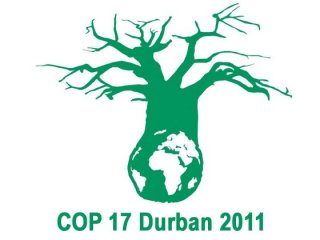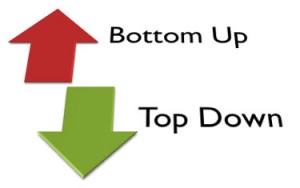Dickinson to Durban » Entries tagged with "Maggie Rees"
What to expect, with low expectations…

By: Maggie Rees With COP17 quickly approaching, expectations are running high. The main talk of the town is what might happen with the Kyoto Protocol. A revision of the Protocol, drafted by Australia and Norway involves legally binding agreements, and includes less-developed countries. Resources for the Future describes the changes to Kyoto as follows: · Standardizing targets at Durban, including 2020 emissions reduction targets. · Formalizing and updating targets annually until 2015, ensuring transparency in emissions reductions. · In 2012, … Read entire article »
Filed under: Climate Change
“Top-Down” and “Bottom-Up”

By: Maggie Rees Often spoken about in climate negotiations is “top-down” and “bottom up” models for climate policy. Such models are included in overall approaches for climate negotiations. As COP17 reaches nearer and nearer, I am attempting to have a complete understanding of as many negotiation terms, models, lingo, articles, and any other information to be in full-awareness while in Durban. My focus on “top-down” and “bottom-up” models first started this past weekend spent in Washington, … Read entire article »
Filed under: Climate Change
Something we can all learn from college students…
In 2007, Dickinson College’s President William G. Durden signed the American College and University Presidents’ Climate Commitment (ACUPCC). Over 670 colleges and universities throughout the nation have committed to significantly reducing their greenhouse gas emissions; Dickinson College’s agreement entails climate neutrality by the year 2020. In an attempt to reach this goal, Dickinson College produced a detailed climate action plan (CAP) for exactly how to implement sustainable changes to Dickinson’s daily functioning. By following the implementations of this CAP, Dickinson hopes to reach net zero emissions by 2020. Sawin and Moomaw (2009) have a similar idea for international climate negotiations. What if a custom global climate action plan was assembled and implemented by instigating CAPs for individual country emissions? Sawin and Moomaw compiled a promise for energy efficiency based on sectors of … Read entire article »
Filed under: Summer Reading Responses
Key Players in U.S. Climate Policy
The companies listed above are those establishments chosen by Resources for the Future (RFF) research on an executive summary and overview of potential U.S. climate change policy implementations. The opinions of these companies, along with RFF researchers, provide a wide range of inputs and estimations for appropriate climate legislation in the United Sates. The array of representatives ranges from oil and gas companies to agricultural and chemical producers. It is important for these companies to have a say in legislation because it is likely that they will be most affected by changes in policy. Possible implementations for greenhouse gas emission reductions are market-based approaches, like a cap-and-trade system or a carbon tax. Such policies enforce greenhouse gas emission reductions on those companies most responsible for emitting in the first place. Thus, … Read entire article »
Filed under: Summer Reading Responses
Recent Comments